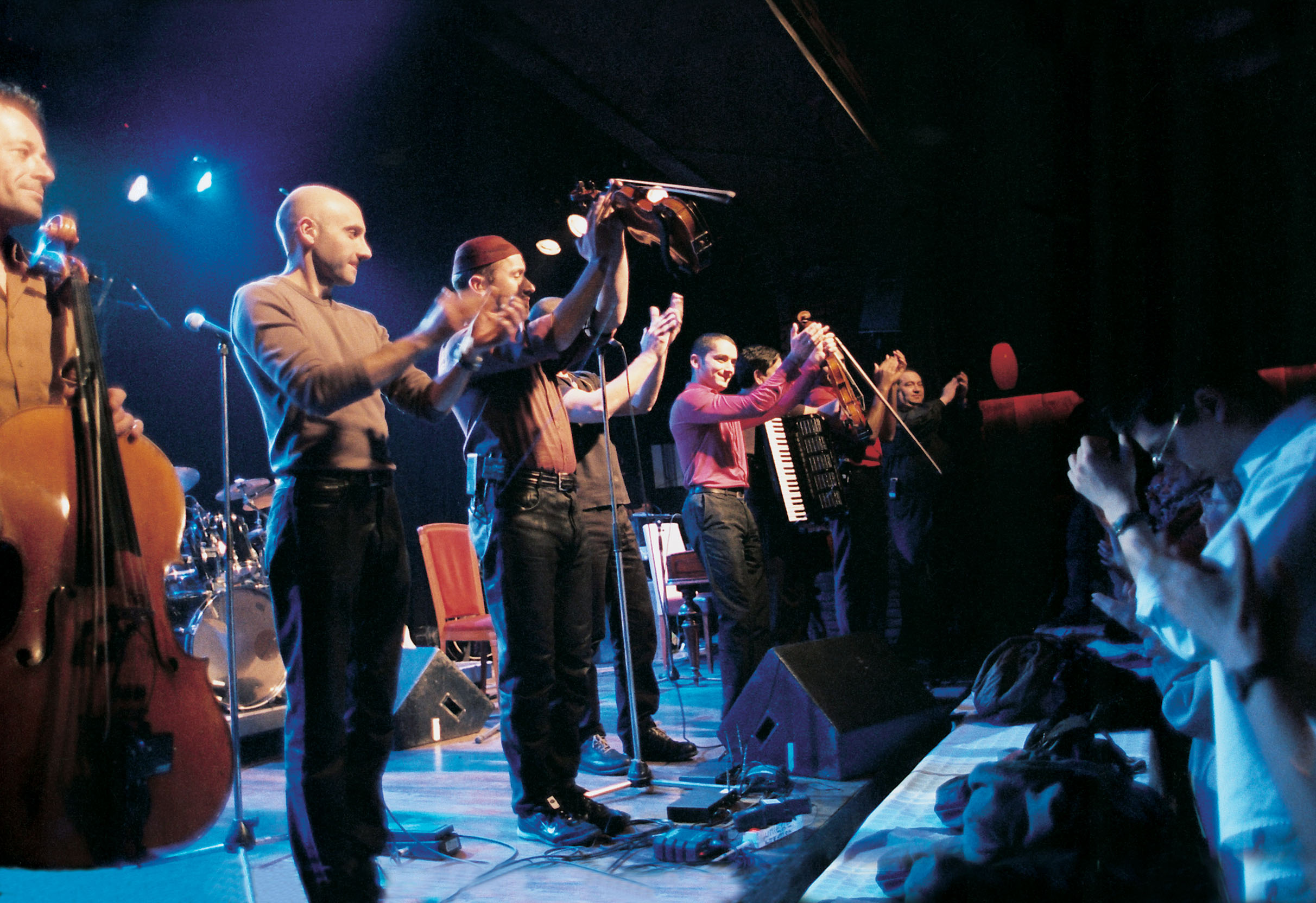Les Yeux Noirs: Just a little Rachmaninoff on a Thursday night

“I wish you this treat,” said Éric Slabiak, one of two violinists and the lead vocalist for Les Yeux Noirs, before he launched into a melodic, raucous and tireless set to wrap up the 2010 Chutzhpah! Festival
Exuberant and lively and increasing frenetic and feverish, the music of Les Yeux Noirs is perhaps best imagined as Yiddish pop with a jazz flourish. Also strongly influencing their style is a musical tradition that evokes joy, dance and celebration: Klezmer has roots in the ghettos of Eastern Europe (according to some sources but not all) and is linked to community events like weddings.
For this gentile, it was a treat, a fascinating and foreign delight. The crowd was mature but contemporary and eclectic. Women danced with their arms raised and palms toward the stage in ecstatic, secular communion. People sang along. Not one song was in English.
Les Yeux Noirs, led by brothers Éric and Olivier, take the name of a popular folk song, often identified as a Russian gypsy ballad, “Dark Eyes” or “Black Eyes,” which was written by a Ukrainian poet and German composer. Django Reinhardt reportedly recorded the song three times in 1940, and the brothers took it as their name because the tune is loved by their audiences.
“When we play marriages or banquets, people would request the song up to 20 times a night,” Éric told a French music writer in 2005. On Thursday at Venue on Granville Street, he even managed to crack a simultaneously racist and homophobic joke like someone’s uncle, uncouth and seated in the corner.
The brothers Slabiak, whose Polish family came to Paris in the 1920s, promote themselves as border-crossing troubadours who transcend political and national borders like the gypsies they are. The music, on the other hand, was rooted in the cultural map of the Eastern European Jewish Diaspora. Folk and dance songs performed in Russian, Yiddish, Ukranian, and French with accordion, guitar, strong percussion and two dueling violins. Energy was seriously high.
The brothers’ performance was especially riveting. Near the end of the night, they fooled around, playing competing chords on the same violin. Éric and Olivier played different rhythms but both had one hand and a bow on the same instrument, which was clasped against Olivier’s shoulder. Entertaining, original, dramatic and fiercely executed, their one-upmanship swelled into a fury of call-and-answer with an escalating (read—exhaustive) pace and at least five broken strings between them.
In a skinny, chic stripped suit, Éric was more erotic than sexy, and Olivier affected a collegial, Trotsky-like look with a cap and round glasses. Like a fiddlers’ throw-down in a barn somewhere near the sea, Les Yeux Noirs didn’t deviate from what they do best. The audience left satisfied and panting.



